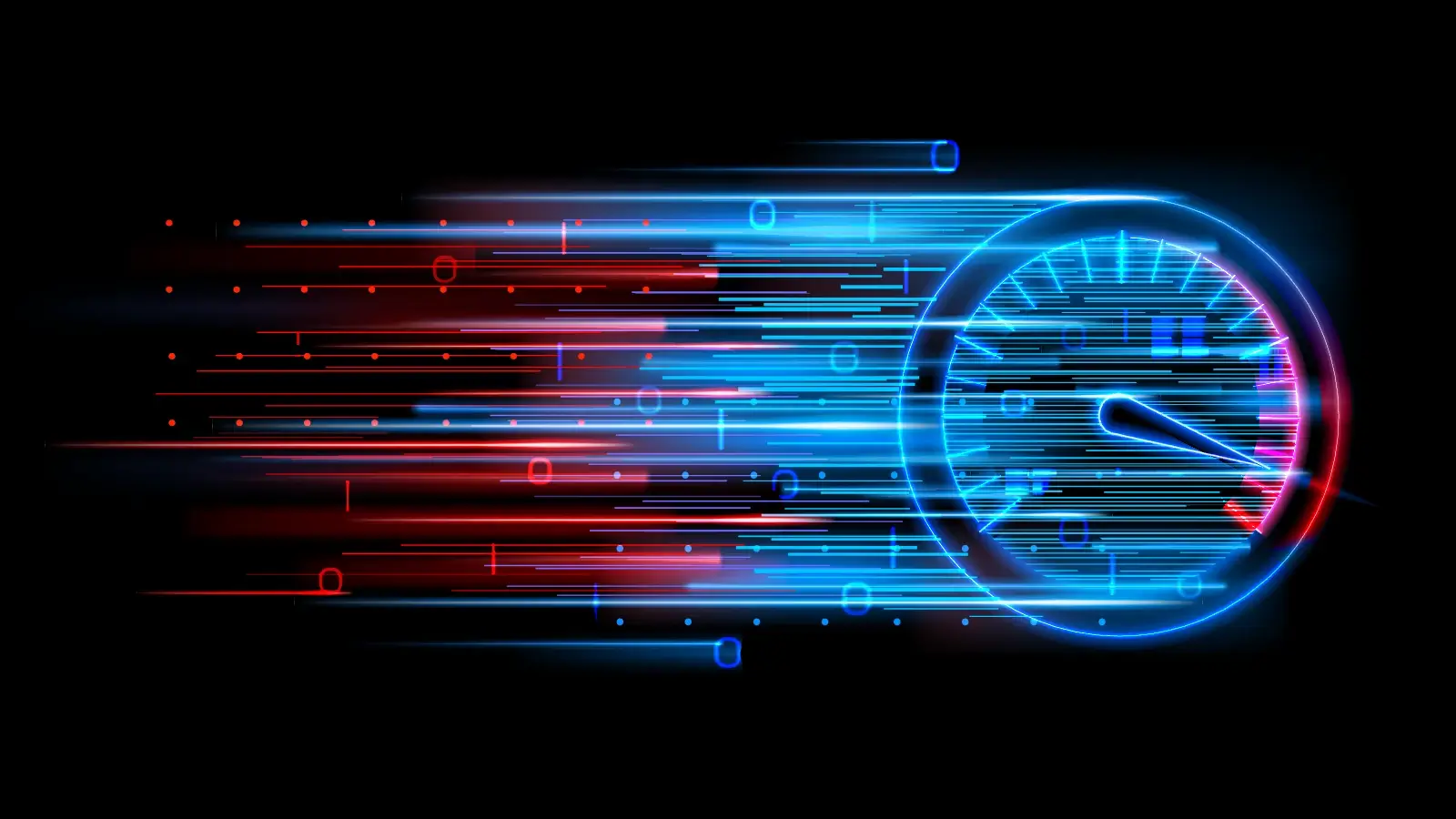Many internet users often notice that their browsing, downloading, or streaming experiences feel smoother during late hours. This difference in internet speeds has led to a common belief that internet connections are faster at night compared to the daytime. But is this really true? In this article, we’ll look into the factors affecting internet speed, and explain why you might experience faster internet at night.

Is the Internet Really Faster at Night (and Early Morning)?
Yes, internet speeds can sometimes be faster at night (and early morning) due to lower network congestion.
Internet service providers (ISPs) offer bandwidth, which is shared among users in the same area. During peak hours—typically in the daytime and early evening—more people are online, consuming bandwidth by streaming videos, playing online games, or using social media. However, at night, fewer people are active online, freeing up bandwidth and allowing for faster internet speeds.
Factors That Impact Internet Speeds Throughout the Day.
1. Network Congestion.
The primary reason behind slower internet during the day is high traffic. During business and working hours and even in the early evening, a large portion of the population is online for work, school, or entertainment. As more people use the network simultaneously, internet speeds slow down.
2. Bandwidth Throttling by ISPs.
In some cases, ISPs may throttle or limit your bandwidth, especially during peak hours, to ensure equitable distribution of the available bandwidth. Throttling usually stops (and doesn’t work) late at night when fewer users are online, making it seem like your internet speed is faster.
3. Distance from the Server.
If your data is traveling over long distances, latency or lag can occur.
Although this issue is consistent throughout the day, during non-peak hours (usually at night), there’s less congestion on the network, which can reduce latency and improve speed.
Latency is also a reason you think internet is faster and slower. When network is not busy at night, latency is superfast making everything snappier; in day hours thing take more time to load due to busy network.
4. Type of Internet Connection.
The type of internet connection you have—whether it’s DSL, fiber, satellite, or cable—also plays a role in speed fluctuations. Cable internet, in particular, is susceptible to slower speeds during peak hours, as bandwidth is shared among users in the neighborhood. Satellite connection is subject to clear weather conditions. Fiber optics is the fastest and congestion free network.
If your region have fiber optics connectivity, opt for that only.
Why Internet Speeds Feel Faster at Night?
- Fewer Users Online: With fewer people browsing the web at night, there is more bandwidth available for each user. On top of that, due to less load on network equipment, response times are also faster.
- ISP Network Optimization: Some ISPs may manage their networks in a way that prioritizes heavy traffic during peak hours, allowing more bandwidth availability during off-peak times.
- No Competing Devices: During the day, multiple devices may be connected to your home network (smartphones, computers, streaming devices). At night, fewer devices are likely using the network, reducing internal congestion.
Is Night Time the Best Time for Internet Usage?
If you’re looking to perform tasks that require high bandwidth, such as large downloads, HD video streaming, or online gaming, late-night hours can be ideal due to faster internet speeds.
However, most modern broadband and fiber-optic connections should still offer sufficient speed even during peak hours for average users. So it is better to buy more bandwidth for day work than breaking your sleep patterns, or schedule high bandwidth activities like system updates and downloads at night.
Scheduling such activities doesn’t require human attention, and you’ll get enough time to complete any left work in early morning, where network is still faster and just starts to take loads.
For instance, I always left downloading GTA-V installation before I sleep, it’s very big (around 120 GB), when I wake up in morning, everything is ready for me. While the same thing will never finish in daytime due to slower server speeds and busy network in my house.
How to Optimize Your Internet Speed During Peak Hours?
If you’re dealing with slow internet speeds during the day, here are a few tips to optimize your connection:
- Upgrade Your Plan: If your current plan isn’t offering the speeds you need, consider upgrading to a higher tier with more bandwidth. That is the only option you are left with, don’t fall in any other tricks.
- Switch to Wired Connections: Wi-Fi signals can degrade over distance. Switch to a wired Ethernet connection for faster speeds. Or use the modern networking gears for faster speeds.
- Use a VPN: Sometimes ISPs throttle bandwidth based on the type of content you’re accessing (such as streaming services). A VPN can help bypass this throttling. But that will be an additional cost.
- Limit Device Connections: Disconnect unnecessary devices from your network to reduce congestion.
Conclusion.
In summary, internet speeds are often faster at night due to lower network congestion and less throttling by ISPs. However, this speed boost may not be noticeable for everyone, as factors like your type of connection, bandwidth usage, and ISP policies all play a role. While the internet might be faster at night, there are plenty of ways to optimize your connection for better speeds, regardless of the time of day.
Leave a Reply